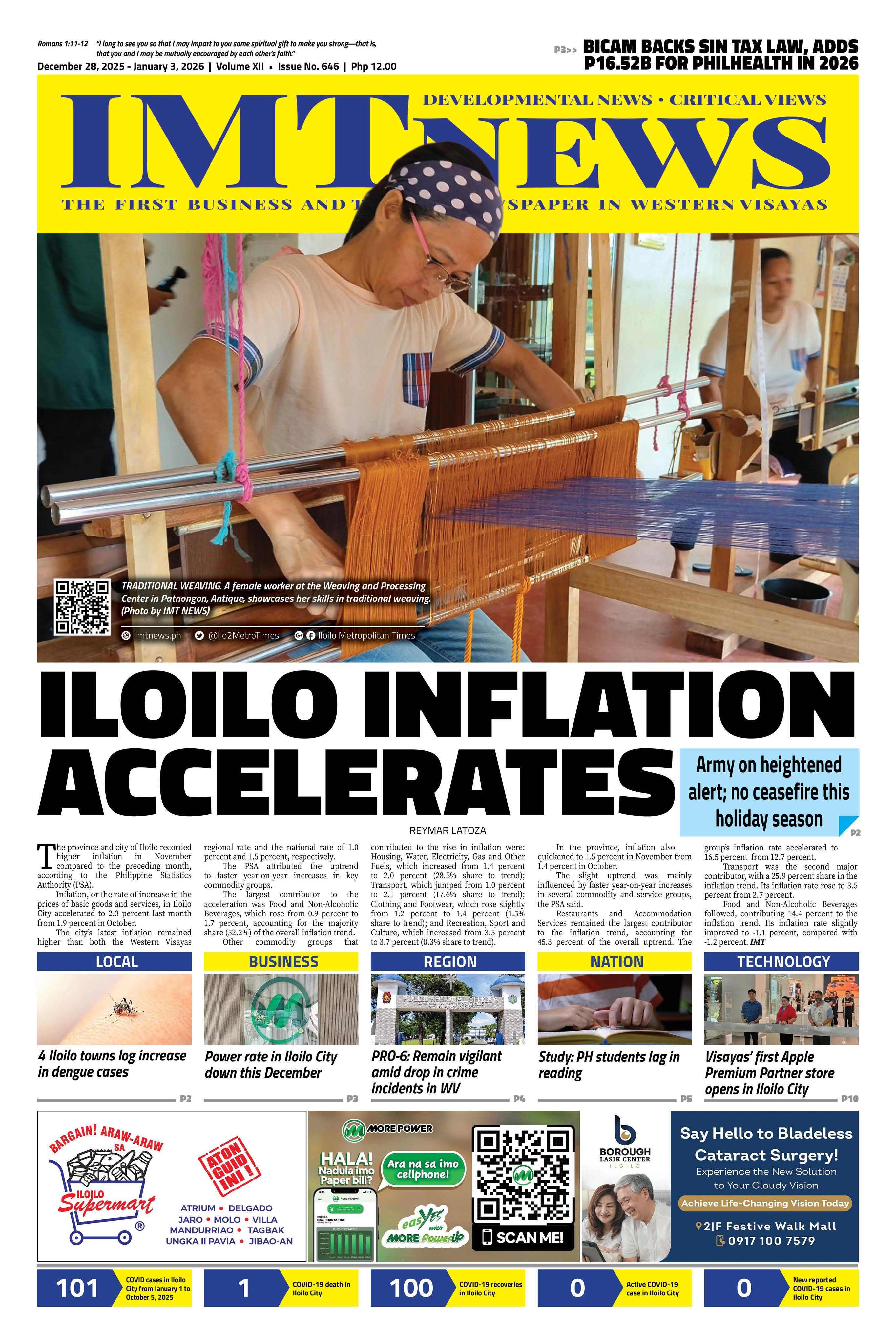A Japanese tunnel located within the compound of the Iloilo Science and Technology University (ISAT U) is being eyed as an additional tourist attraction in Iloilo City.
It looks like a deep well but actually it is a tunnel. We wanted to revive that tunnel,” said Dr. Raul Muyong, ISAT U president, in an interview on the sidelines of the Strengthening Philippine Higher Education through HEDF (Higher Education Development Fund) Projects in the city.
Muyong said a proposal was already submitted to the Commission on Higher Education (CHED) for an initial P10 million to cover the first phase of the proposed revival project.
The tunnel crosses from the old campus of the university to its new campus leading to a river.
“Iloilo City is a booming city in terms of tourism. So it will boost the tourism industry of our city,” he said, citing the impact of the project once it pushes through.
He added that the city government’s tourism office every time they have Japanese guests make it a point to bring them to the university for a visit to the tunnel.
Aside from helping the city’s tourism industry, it will also support the institution’s Bachelor of Science in Tourism program. ‘This is a good proposal. We hope it will be approved by Ched,” he added.
City Tourism and Development Officer Junel Ann Divinagracia, in a phone interview on Friday, said the proposal is a welcome development, adding that they have inspected the tunnel before.
She said there are remaining structures inside the university’s new campus, which the Japanese would like to be transformed into a garden.
Divinagracia said that a lot of Japanese tourists are interested in the tunnel because they know there is one that connects from ISAT U to the plaza of Jaro district leading to the Salog River, Divinagracia said.
“On my part I wanted it pursued because it will serve as a tourism destination for the Japanese so they will see that Iloilo has a history with the Japanese,” she said.
She added that from what she heard, the tunnel used to be huge to accommodate even vehicles but was damaged due to developments such as drilling and drainages.
Nonetheless, she said that the remaining portion can still be preserved although there is an apprehension that it will collapse because they are situated under road structures.
Divinagracia said the Japanese tunnel, if revived, will surely draw tourists to Iloilo.
While the city has no data as to the number of Japanese tourists visiting this city, she said that “surprisingly it increases”.
In 2018, national leaders of the Ship for Southeast Asian and Japanese Youth Program (SSEAYP) and a Japanese cruise ship arrived in Iloilo and some were able to visit the tunnel when informed about it.
“Hopefully, this initiative can help raise the name of Iloilo and the history of Japanese and Ilonggos during World War (II) and they will be enticed to come here,” she said.
She added that since it is a heritage, they can ask for funding from concerned agencies for the proposed project.PNA







